#25. The First World War
The declaration of the First World War took place after the assassination of Austro-Hungary’s Archduke Franz Ferdinand in 1914. Germany (which at that time was named the German Reich) made an alliance with the Austro-Hungarian Empire against Britain and France, the most powerful countries of that period. The WWI broke all the limits that were known for that time: in fact, it was the first time in history that a worldwide international battle took place.
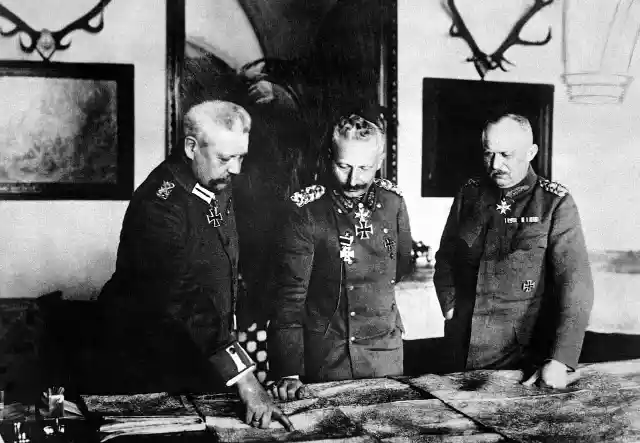
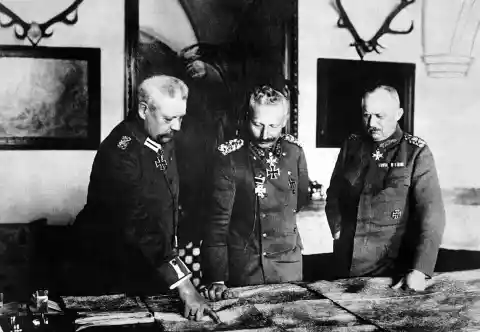
Each and every newspaper, television, and radio was talking about the war. Every part of the world was following the war’s events, even a neutral country like Belgium. But considering that Belgium had already declared neutrality, why and how did it get involved in the war? Keep on reading to see more about this historical event, as well as about the life of the volunteer soldier, Optatius Buyssens. You don’t want to miss his incredible and unbelievable story!
#24. A Neutral Country
Each time there is an international conflict such as a war, the majority of the countries in the world must declare who they will support, or if they will remain neutral. They should declare their position even if they are thousands of miles away from the source of the conflict. In the case of Belgium, the country declared neutrality as soon as WWI began.
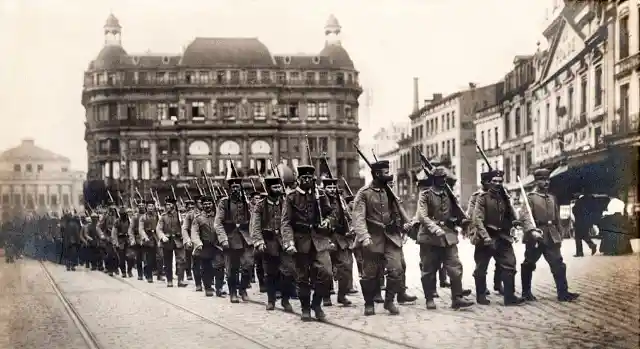
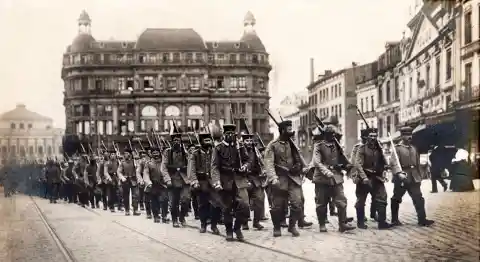
Despite their declaration, the German Army gave Belgium an ultimatum in August 1914: the Belgians had to help the German Reich and allow German troops to pass through their country, in order for them to reach France, their major enemy. Belgium’s location was perfect, as it is right in between France and Germany. However, Belgium remained in their neutral position and refused to give the German Reich permission to pass through the country. However, their stance was completely ignored by the Germans, as they invaded the country on August 3, 1914. This marked Belgium’s engagement in WWI.
#23. German Invasion Of Belgium
The German Reich’s decision to invade Belgium was a clear violation of the Treaty of London, to which the country had decided to adhere. This treaty was signed in London on April 19, 1839, between Great Britain, Austria, France, Prussia, and the Netherlands. Among the treaty’s many clauses, these countries recognized the neutrality of Belgium.
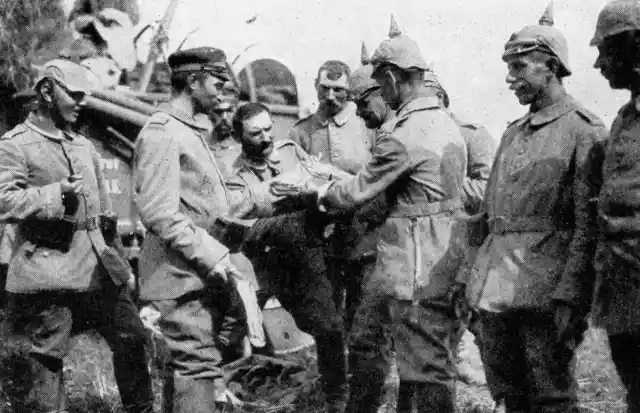
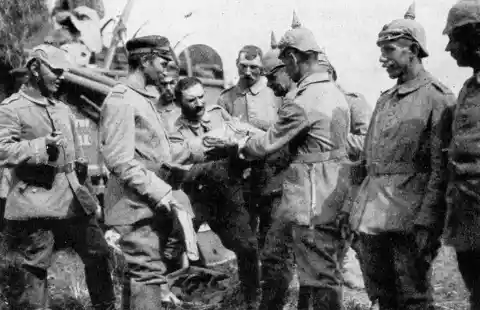
Britain and France, two of the most powerful European countries of the time, decided to support Belgium. However, many countries decided to preserve their neutrality, basically because they were fully aware that taking sides could mean risking a German invasion and thus inflicting hundreds of thousands of deaths among their people.
#22. The German Emperor
Friedrich Wilhelm Viktor Albrecht von Preußen, also known as Kaiser Wilhelm II, was the last Emperor – or Kaiser – of the German Reich and the last King of Prussia from 1888 to 1918. He was, without a doubt, one of the main propellants of the German invasion of Belgium. He was also a close friend of Austro-Hungary’s Archduke Franz Ferdinand and was thus completely devastated after his death. He was sure that a secret organization had planned the assassination of the Archduke.
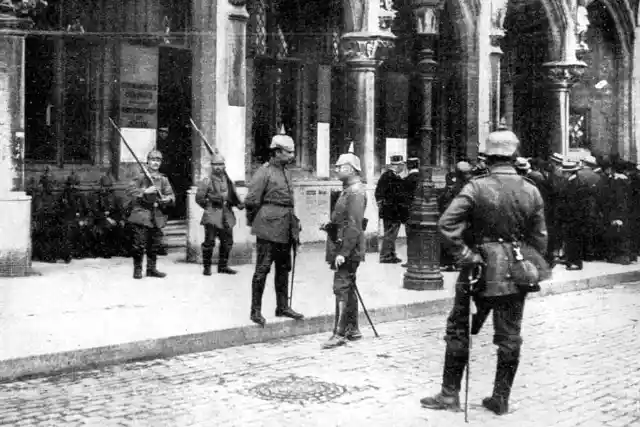
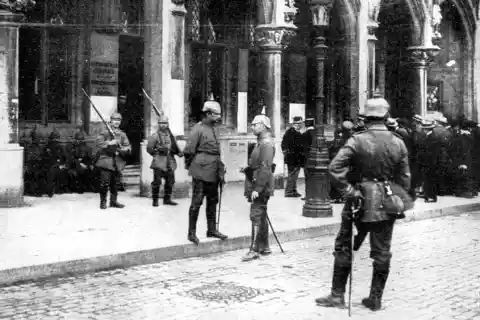
Most of the personalities from the academic world still don’t know whether the decision to declare the First World War was his idea. Some historians say that Wilhelm II’s real intention wasn’t to declare war because of the damage that it would inflict upon the German Reich. But one way or another, the truth is that Germany’s declaration of war changed the whole world panorama.
#21. Alfred Graf Von Schlieffen
During international conflicts, things move really fast. The British Crown declared war to the German Reich a day after the German Army invaded Belgium, on August 4. The German troops had to follow a special plan that was designed by the Chief of the General Staff of the German Army: Alfred Graf Von Schlieffen.
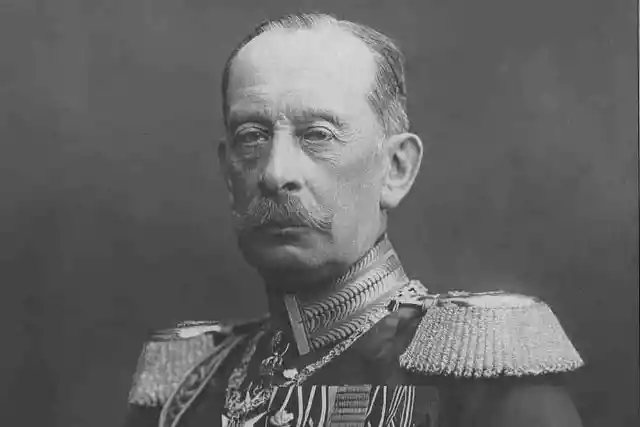
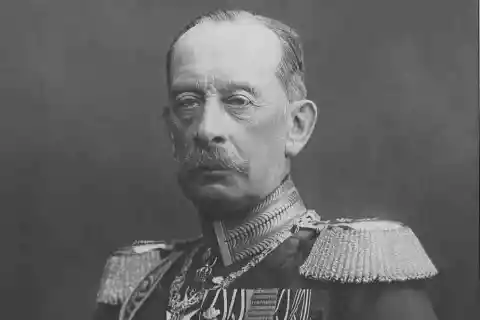
The German war plans were designed to invade France and defeat the country in a few weeks. Schlieffen devised an army deployment plan for a war-winning offensive against the country. Many military advisers believed that this plan would never succeed, but Von Schlieffen was unwilling to change his mind. Keep on reading to know what this plan was about!
#20. The Schlieffen Plan
The Schlieffen Plan was clear and dynamic, or at least that was what Schlieffen thought. To start his plan he had to move all the troops of the German Reich, which involved a huge amount of money, troops and food. He decided to use men from other branches of the Army in order to multiplicate the number of soldiers.
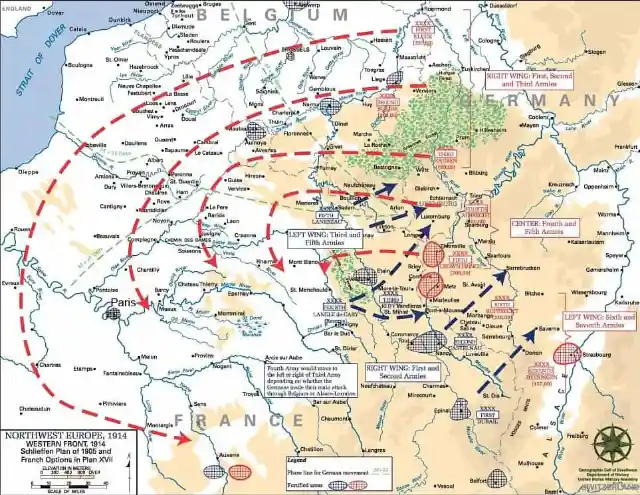
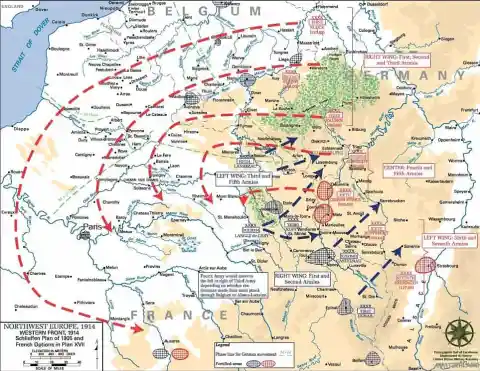
The plan consisted of three steps. The first one was calling all the German troops and moving them to the frontier with Belgium, so as to form a big circle all around the country. The second step consisted in crossing through Belgium all the way to the French capital, Paris. The last step was supposedly the easiest one: after defeating France, they would be able to reach and defeat Russia.
#19. The Germans attacked Liege
Belgium had never been involved in a war until WWI. The country felt the consequences of the war and its largescale brutality. On the same week after having crossed the frontier, the Germans attacked an important Belgian City: Liege.
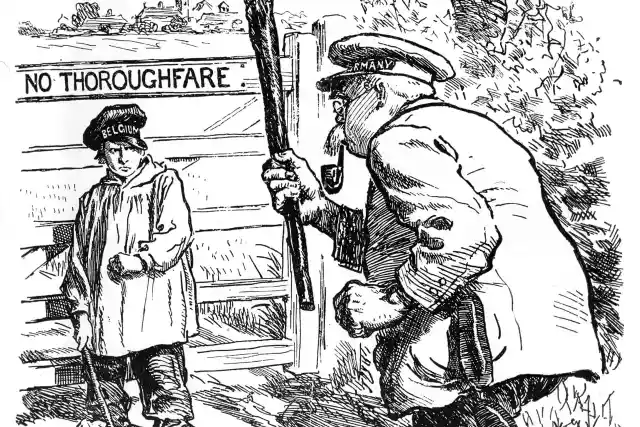
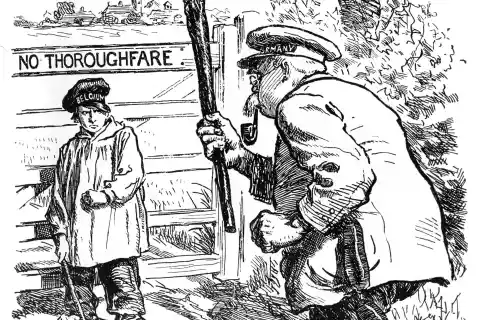
Sadly, Liege was not the only city to be torn down. By the 16th of August, the whole city was in the hands of the German Army. But, of course, this was just the beginning.
#18. Living In War
Only a couple of weeks after the German invasion, all of Belgium had been conquered, except a small part in western Flanders. This unconquered territory helped the Belgian Army to protect and combat against the Germans troops during the war.
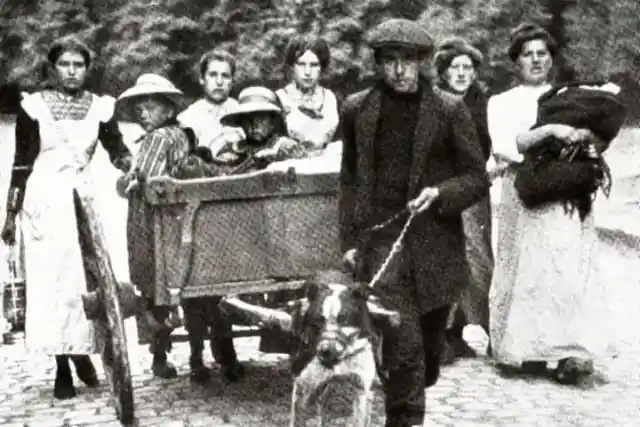
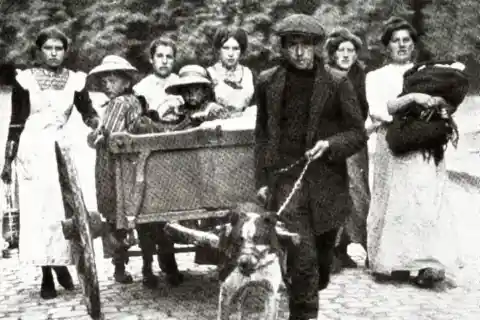
The Belgian Army fought in WWI defending their own country but also helping France from the Germans. Believe it or not, this was the first time the Belgian Army was involved in an international conflict, without counting its independence.
#17. The Batlle Of Buggenehout
Everything moved really fast in this war. After the city of Liege was conquered, the Germans continued besieging other important cities like Namur, that was under German control by August 24. In order to defend their country, the Belgian Army decided to plan a counterattack: thus, on September 25 they started the Battle of Buggenhout.
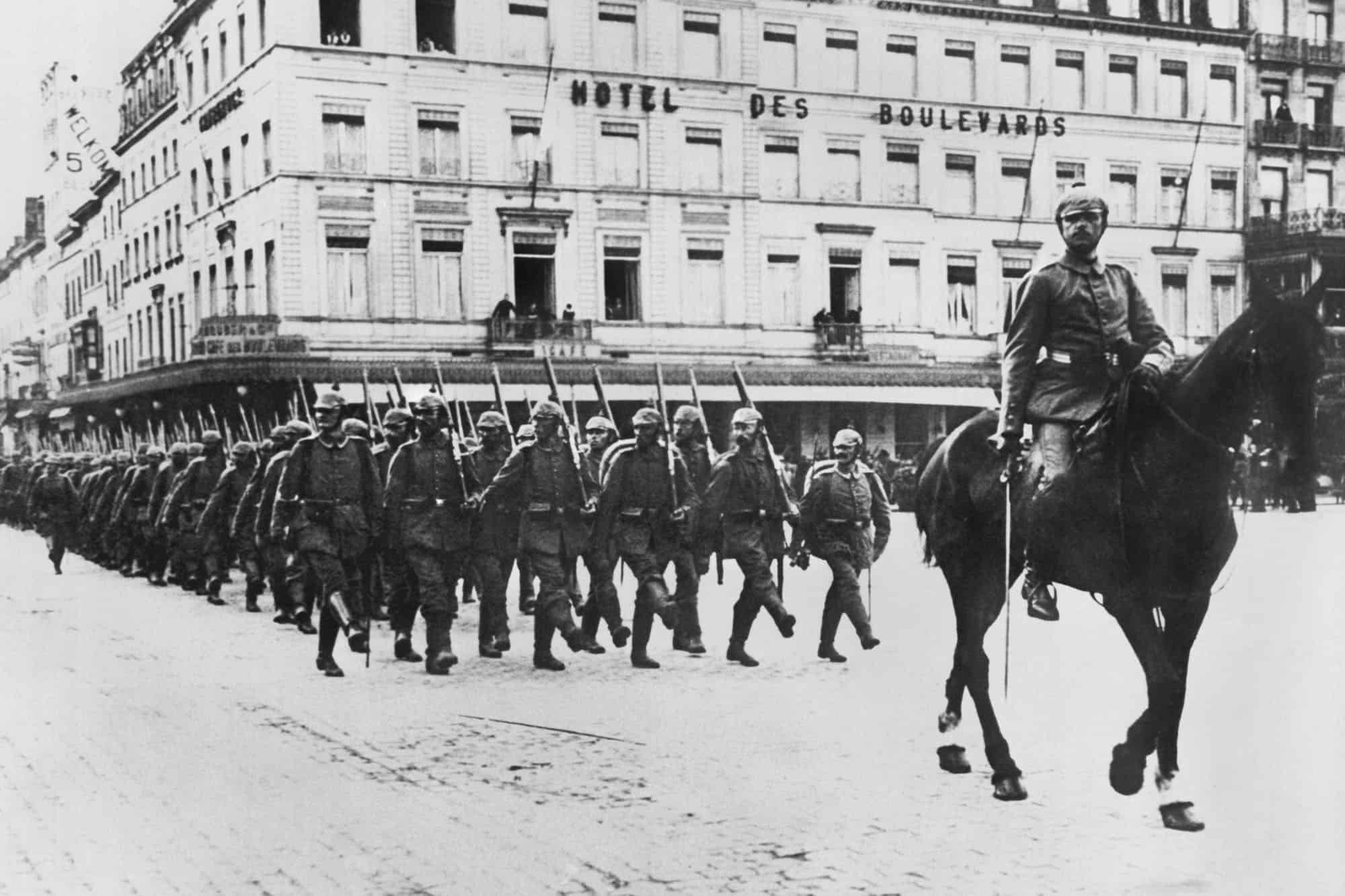

The Batlle Of Buggenehout was a strategic plan of the Belgian army, and its aim was to destroy the communications at several points of the country. They did this by cutting the principal communication lines in Limburg, Brabant, and Hainault on September 25.
#16. A Belgian Soldier Appears.
However, many of the events that take place in a war escape our sight. We don’t know how the soldiers’ lives are on the battlefield, nor how they feel or even what they think about during the conflict. Nothing is more impersonal than a war: you become part of a big group defending interests that maybe are not yours. And the soliders’ stories are seldom included in history books. But in this case, we have a very rich story that is truly worth learning about.
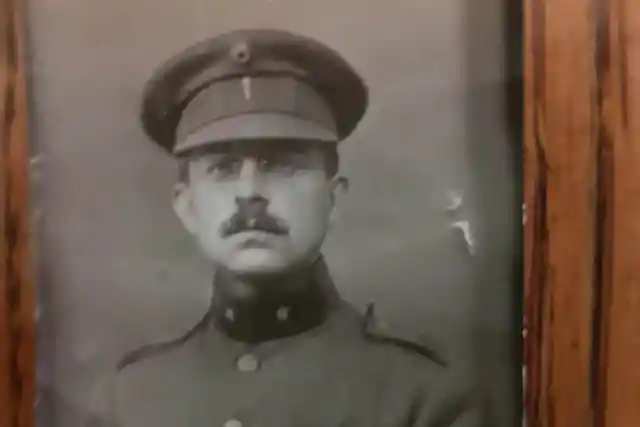
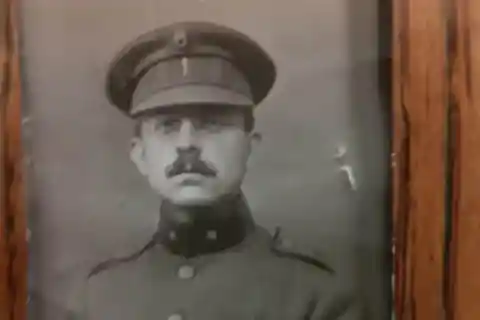
In the Battle of Buggenehout, a Belgian soldier called Optatius Buyssens was part of it. Why is this man so important to us? How do we know so much about his story? The answer brings us to the website Reddit. You’re probably wondering what Reddit has to do with Optatius Buyssens and his role in WWI. You’ll soon find out!
#15. Vincent Buyssens
28-year-old Vincent Buyssens lives in the city of Antwerp in Belgium and works as a digital strategist. He is also a frequent user of the website Reddit. But above all, he is the great-grandson of the WWI soldier Optatius Buyssens.


His family experienced first hand the consequences of the Great War. Therefore, Vincent decided to post several stories about his great-grandfather on the social media site. But why did his story became so famous, and why did it capture the attention of millions of people? Keep on reading to find out!
#14. Capturing People’s Attention
Just 24 hours after Vincent posted his story on Reddit in November 2018, hundreds of people started to share it, and many others commented on it. In fact, the post won more than 130.000 upvotes. That sure is a lot!
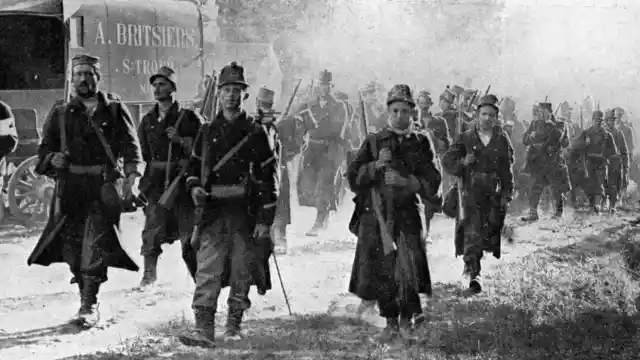
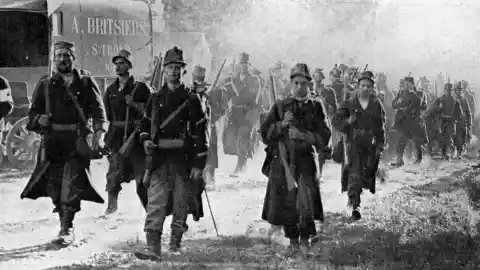
But not only that: the story also captured the attention of journalists from different parts of the world, international media and television networks such as CNN and BBC. Everyone wanted to know more about the story of Vincent and his great-grandfather Optimus. But Vincent didn’t know a lot about his great-grandfather, and thus began to wonder how he could get to know more about his life.
#13. Optatius Buyssens
Let’s get to the point and look into Optatius’s story. At the beginning of the 20th Century, serving in the army was compulsory. Wars were so common, that giving your life for your country was something that men were taught to do. Optatius was one of these men.
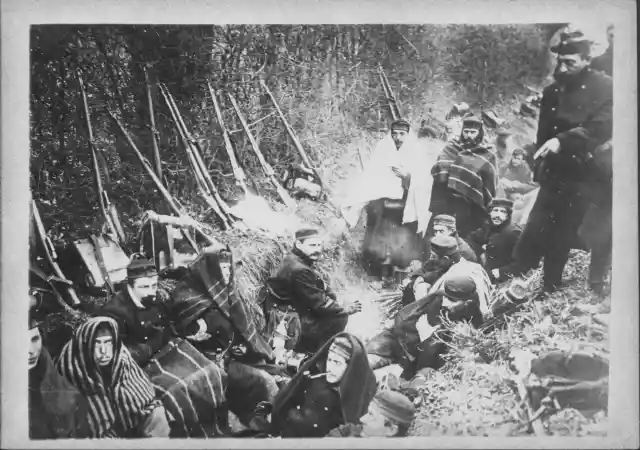
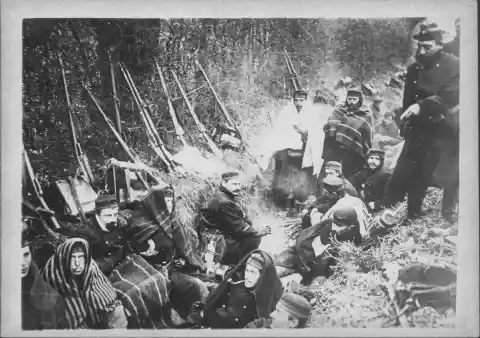
Entering into a National Army was not at all easy for Optatius. To get in, you have to pass a lot of medical and psychological exams. Optatius apparently took these exams once but was rejected because of a past injury in his hip. This was his first try, but it was not going to be the last.
#12. A True Patriot
Nothing was going to stop this man from his dream: to defend his country with his life and honor. We can consider this man as a true patriot. He was not disappointed by the results of his first try, so he decided to continue trying until succeeding. A couple of years later, he finally became part of the Belgian Army.
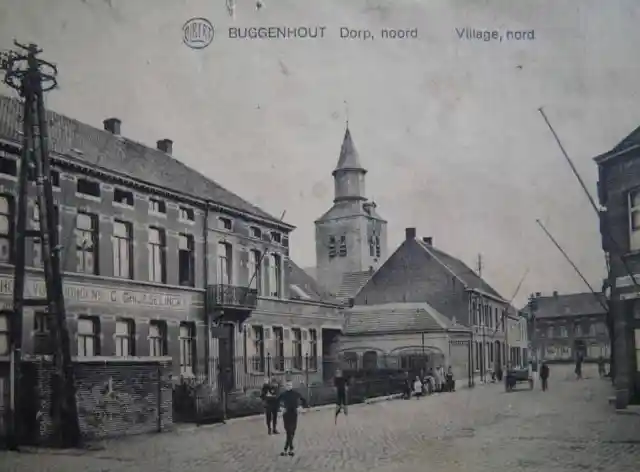
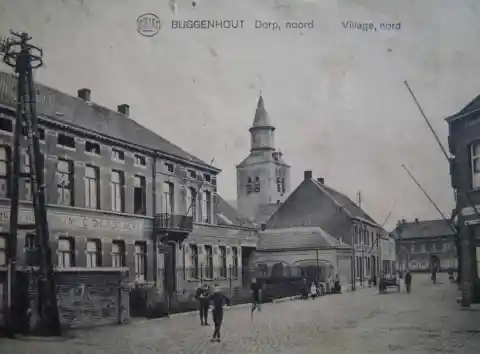
His first day in the army was on September 26, 1914. The place he was stationed at was near Lebbeke, one of the towns where the Battle of Buggenhout took place. What does this mean? That as soon as Optatius entered the army, he already saw himself engaged in one of Belgium’s first battles ever since the German invasion of the country.
#11. Escaping From The Germans
The Battle of Buggenhout began in Limburg, but the course of events changed unexpectedly. That is the reason why two battalions of Belgian troops were ordered to move to the city of Lebbeke, where Buyssens was in a scouting mission. The Belgian troops occupied the city in a matter of a day.
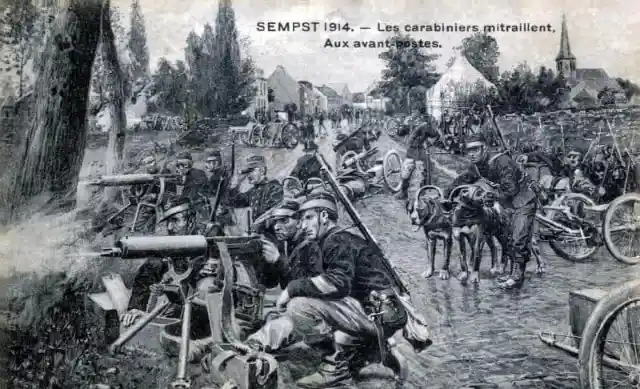
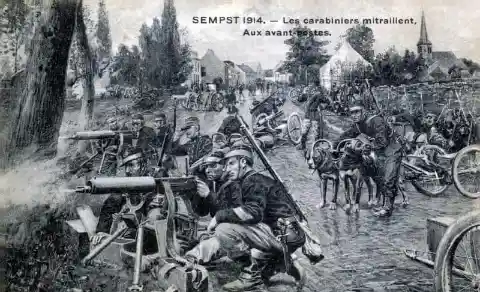
The Belgian troops decided to move to the city of Lebbeke because they wanted to escape from the attacks of the German Army. They thought that the city would be a quiet place, as it was far away from the epicenter of the war. What they didn’t know was that the German soldiers were secretly in the city of Lebbeke and that they were noticed about the Belgian troops’ movements.
#10. A Shot In The Chest
When the soldiers stationed at Lebbeke learned that the German Army was about to attack them, Optatius was probably puzzled. A week before he had been comfortably sleeping in his bedroom, while now he was in the middle of a battlefield with death knocking on his door. But destiny, or maybe some strange supernatural force, was going to help him and let him tell his amazing story.
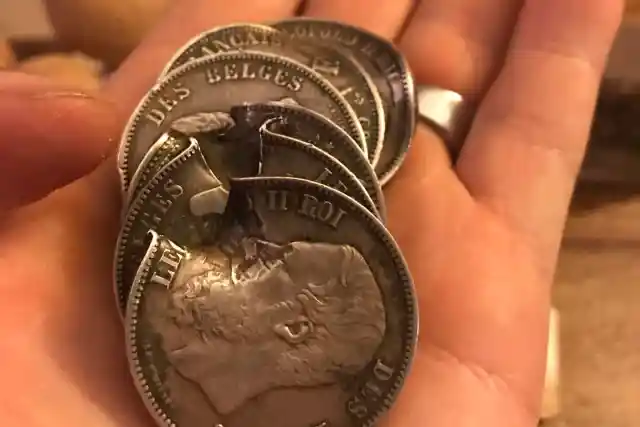
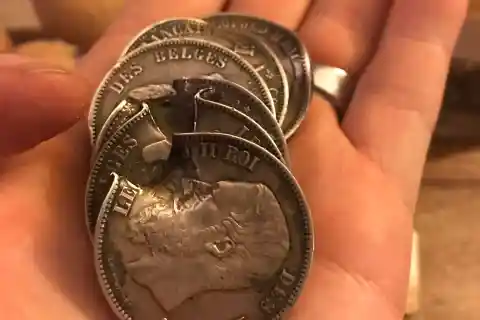
According to the story that his great-grandson Vincent posted on the website Reddit, Optatius was able to escape from death. But how? Apparently, the Germans opened fire and started to shoot every man that was there. His great-grandfather was shot in the chest, and we are sure that a hit like that should have killed him… But something helped him survive.
#9.The Lucky Coins
The German soldier was probably 100% sure he had given the fatal hit to Buyssens. After all, soldiers are trained in order for them to know whether their enemy is alive or not. But little did he know that Optatius had a couple of coins beneath his clothes and inside his breast pocket. So believe it or not, the bullet never hit the body of the Belgian soldier, but hit the coins instead. I know what you’re thinking! What are the odds?
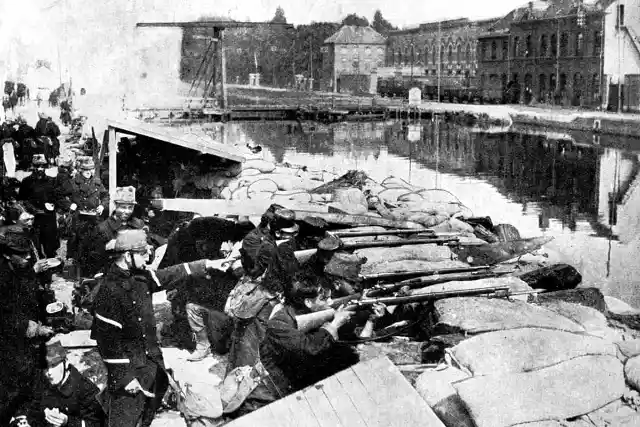
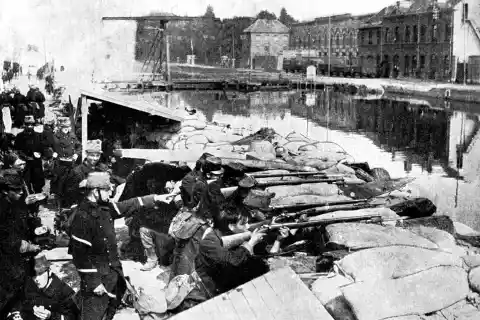
This part of Buyssens’s story was published by his great-grandson because he wanted to share the life of his great-grandfather and express the admiration he felt towards him. In the post, Vincent said: “He was very lucky since the bullet that should have killed him ricocheted off of the coins, thus saving his life”. But the story doesn’t end here, as there is yet another twist to this amazing story and the lucky six coins!
#8. The Paradoxes Of Destiny
Vincent told Mail Online that: “Ironically, the coins were the reason why he got shot”. Why did he say this? It appears to be that the noise of them clinking together made the German soldier point towards the position where he was standing. So ironically, the coins put him in front of death, but at the same time helped him to escape from it.


But even though the German soldier believed that Optatius had been killed, he decided to cross to the Belgian zone and check whether he was still alive. Optatius was laying on the field facing down, and it truly seemed as if he were dead.
#7. A Good Actor
But Buyssens was very intuitive, and when he felt the soldier coming up to him, he knew he didn’t have to move or even breathe. He stayed still until he heard the German moving away from there.
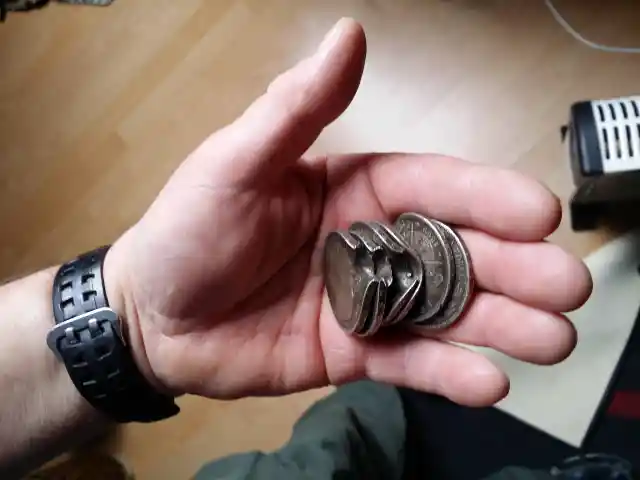
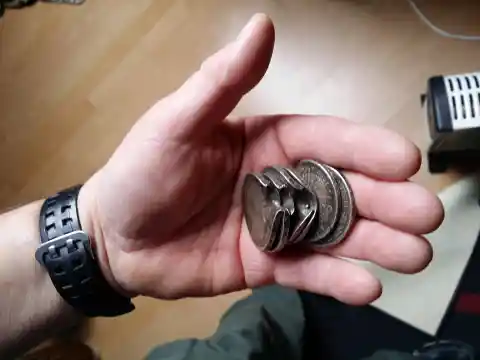
Luckily the German was fooled by Optatius’s tremendous acting. He and the rest of the battalion left the site of the attack, and Optatius stood still for around a couple more hours. After all, he had to be completely sure that there was nobody watching, not even at a distance.
#6. A Miraculous Story
Now you probably understand why this story won such an amount of followers. It’s not hard to imagine why everyone felt admiration towards Optatius, especially Belgians and the people who participated in WWI.
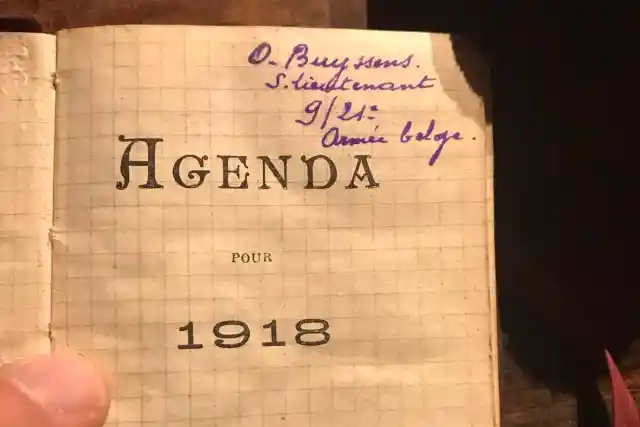
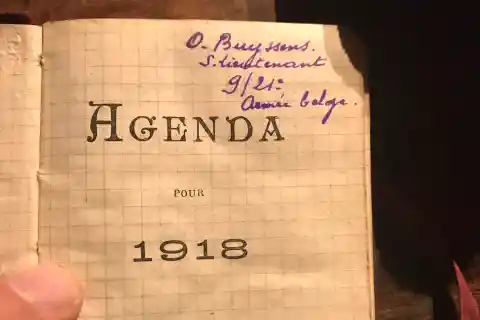
But in case any of you lay in disbelief, it is definitely worth mentioning that Vincent got the evidence to prove the world that he was telling the truth. You don’t want to miss the end of this story!
#5. The Soldier’s Journals
At first, even the soldier’s great-grandson Vincent refused to believe the veracity of the events. He declared to the Mail Online that when first heard the story years ago he couldn’t believe it.
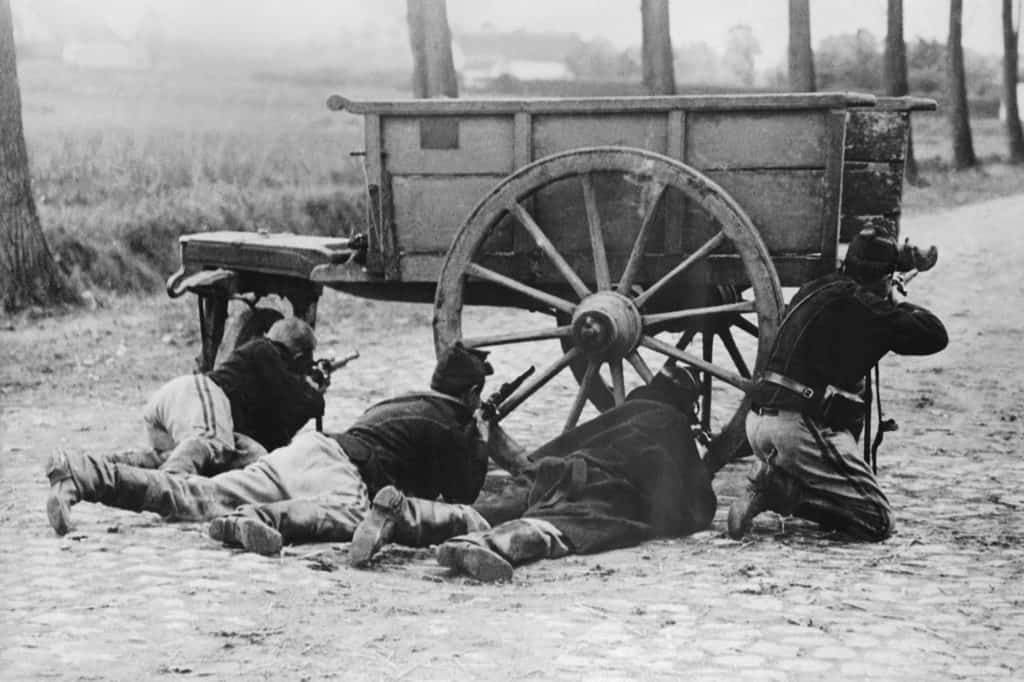

But when he spoke to his grandfather about this, he showed him several of Optatius’s journals. It turns out that the evidence was in the papers. After all, why would a person lie about such events in a personal journal?
#4. Sharing The Story
When Vincent decided to share the story of his family, he never thought that the post was going to be so viral. In an interview, he confessed that many people on Reddit were skeptical about the post and its veracity, but to those who discredited his great-grandfather’s story, Vincent took the time to reply to them and give further details on the events. It was hard because it was a sensitive topic to talk about but in the end, people appreciated Vincent’s attitude and almost everyone believed him.
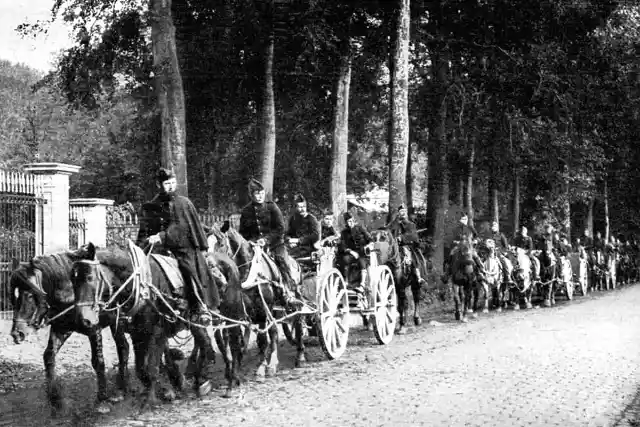
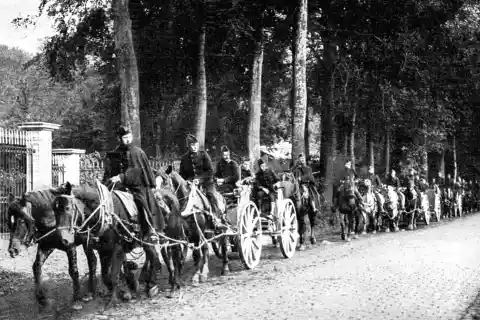
But what else motivated Vincent to share this story online? As Vincent told the Flemish broadcaster VRT NWS, without the coins, his great-grandfather would have been killed instantly in battle, and therefore he would never have been born. Aware that his existence was a miracle, he felt the obligation of sharing his family’s past.
#3. His Life After The Miracle
But there’s a bit more in Optatius’s story. So let’s go back to September 26 of 1914 and find out what happened after the hit! According to the memories that were written in the journals, the German troops abandoned the battlefield after the attack.
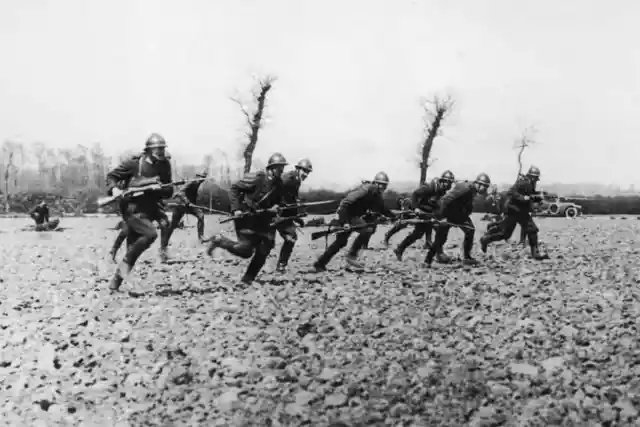
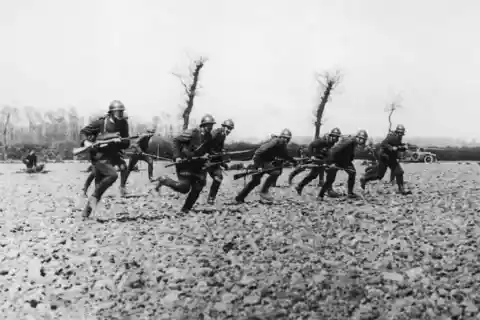
When he heard that the Germans were leaving, Buyssens realized that destiny had given him another opportunity to live. With the company of another wounded compatriot, they left that place together and escaped from danger.
#2. The Escape
Like many soldiers and people during the years of WWI, Optatius managed to cross the Belgian border to The Netherlands. It was not easy and maybe he was afraid that this time the Germans soldier could capture him. But as we know, fortunately, none of this happened!
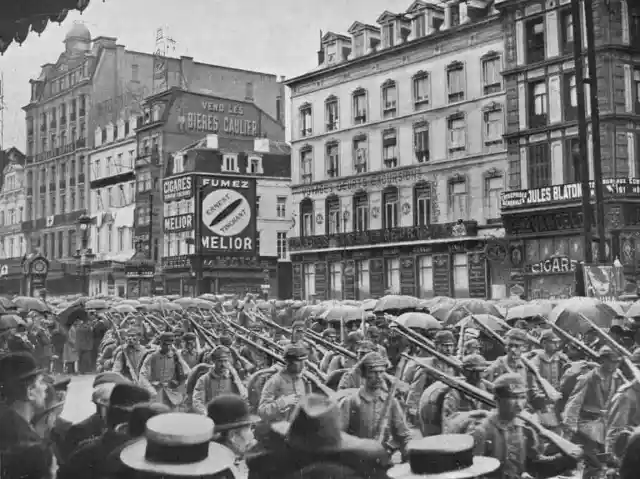
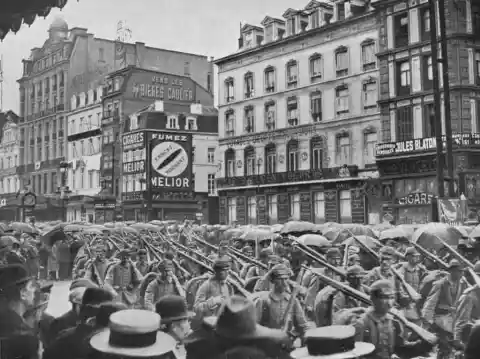
Once in the Netherlands, Optatius was able to move to Britain, where he started recovering from his traumatic experience. Remember that there was obviously no Internet at the time, so his family received no news about him until a year later.
#1. The Lucky One
As you can all see, Optatius’s story is truly amazing. He was one of the thousands of soldiers who fought for their country but now, after reading his story, we can say he was one of the lucky ones. He would have given his life to defend his country… In fact, it was what he did, but his six coins saved him and let him live a long life abroad.
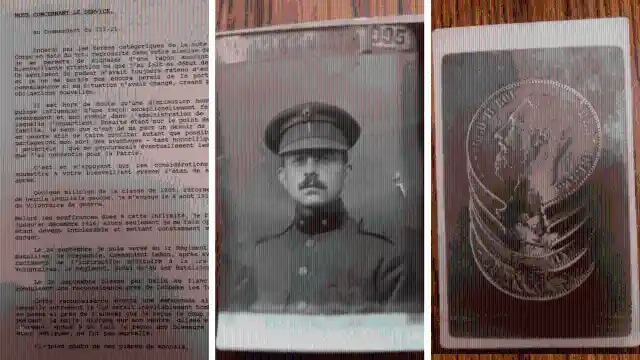
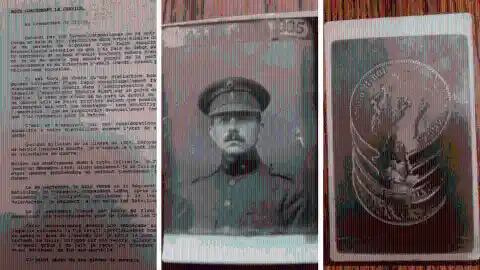
After the war, Buyssens lived for a couple of years in Britain but soon returned to Belgium. He died over three decades later, in 1958, but thanks to his great-grandson Vincent, he still lives in the memories of thousands of people!